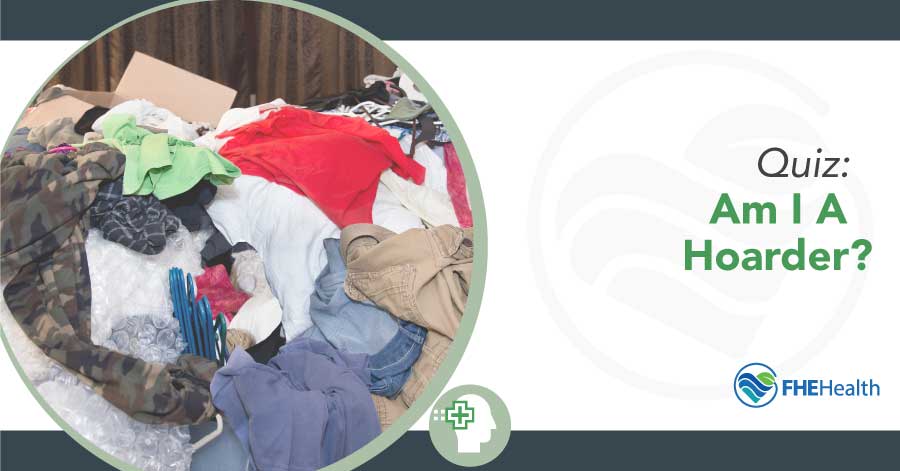
The TV show Hoarders debuted just over a decade ago, in 2009, and has had numerous iterations and spin-offs since then. As a result, there is now much more awareness of hoarding behaviors, as well as what causes people to hoard. This may have you asking, “Am I a hoarder?”
Despite a raised awareness of hoarding, most people still don’t fully understand it and can’t always recognize when it hits close to home. On TV, hoarding is a source of macabre entertainment. In society, we often joke about American consumerism. We may minimize dangerous hoarding behavior as mere materialism. But when someone is afflicted with a severe hoarding disorder, the condition can be devastating — impacting health and destroying relationships, careers, and lives.
Defining Hoarding Disorder: What Is Hoarding?
The word “hoarding” means to stockpile, amass, buy up, and keep things. Hence, the mental health disorder reflects this type of behavior acted out in a compulsive manner. People with hoarder’s “disease” acquire possessions they don’t need and find it difficult, if not impossible, to part with all the things they’ve accumulated.
Distinguishing Between Hoarders and Collectors
Typically, a hoarder’s possessions have little to no real value. This is one of the distinctions between a collector and a hoarder. A collector carefully selects their items, like stamps, coins or cars. They also usually display them in an organized and attractive manner. Hoarders generally have no identifiable rhyme or reason in the storage of their items. Their possessions are cluttered and spread or stacked throughout their homes in a haphazard fashion.
Collectors may be proud of their collections and somewhat attached to their items. But they don’t exhibit emotional stress and anxiety at the idea of losing or selling them. Hoarders, on the other hand, have a strong emotional attachment to their possessions, even when they cannot explain the value of them. Parting with any of their items causes great anxiety.
Another big distinction between collecting and hoarding is the impact the activity has on the person’s home and life. Traditionally, a collector’s hobby doesn’t detrimentally impact their lives either. In fact, it may have beneficial effects. However, hoarding minimizes enjoyment of the person’s living spaces and eventually damages other aspects of their lives.
Quiz: Am I a Hoarder?
If you suspect hoarding tendencies in yourself or someone close to you, this hoarder quiz may help spotlight potential issues. Please understand that this quiz doesn’t provide a diagnosis. Instead, use it as a tool to examine worrisome behavior for signs that you or someone you love may need to seek professional analysis and treatment.
Answer honestly and review the feedback to determine whether your behavior could be dangerous.
Quiz: Am I A Hoarder
Accepting That You or a Loved One May Be a Hoarder
It may be hard to admit that you or someone close has a hoarding condition. Denial is part of the problem. However, the questions above can help you identify whether or not you may be at risk. Honestly assess your answers. Are you showing signs of this serious condition? Consider how your behavior is impacting your life and that of your loved ones. Is it time to seek help?
What You Can Do to Stop Hoarding
There are no clear causes of hoarding. Mental health issues, like depression, anxiety and obsessive-compulsive disorders (OCD), may play a role. Often, a traumatic event can trigger the onset of hoarding. It may also be taught behavior because many hoarders have family members with the condition.
Because hoarding disorder is a mental health condition, the help of a mental health professional is recommended. Reach out to discuss your concerns. Therapy, counseling or psychiatric treatment on an inpatient or outpatient basis can help you get your life back.






